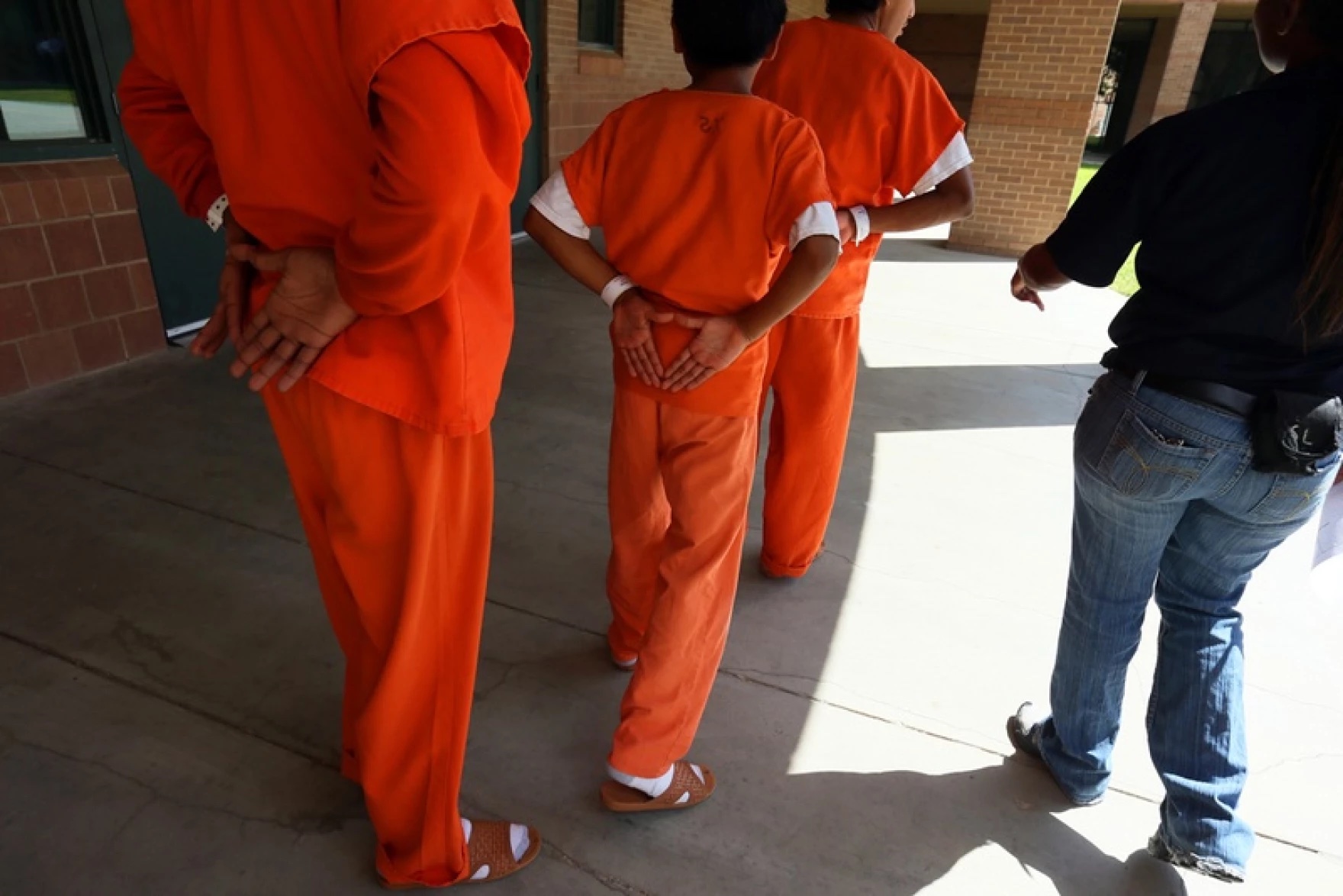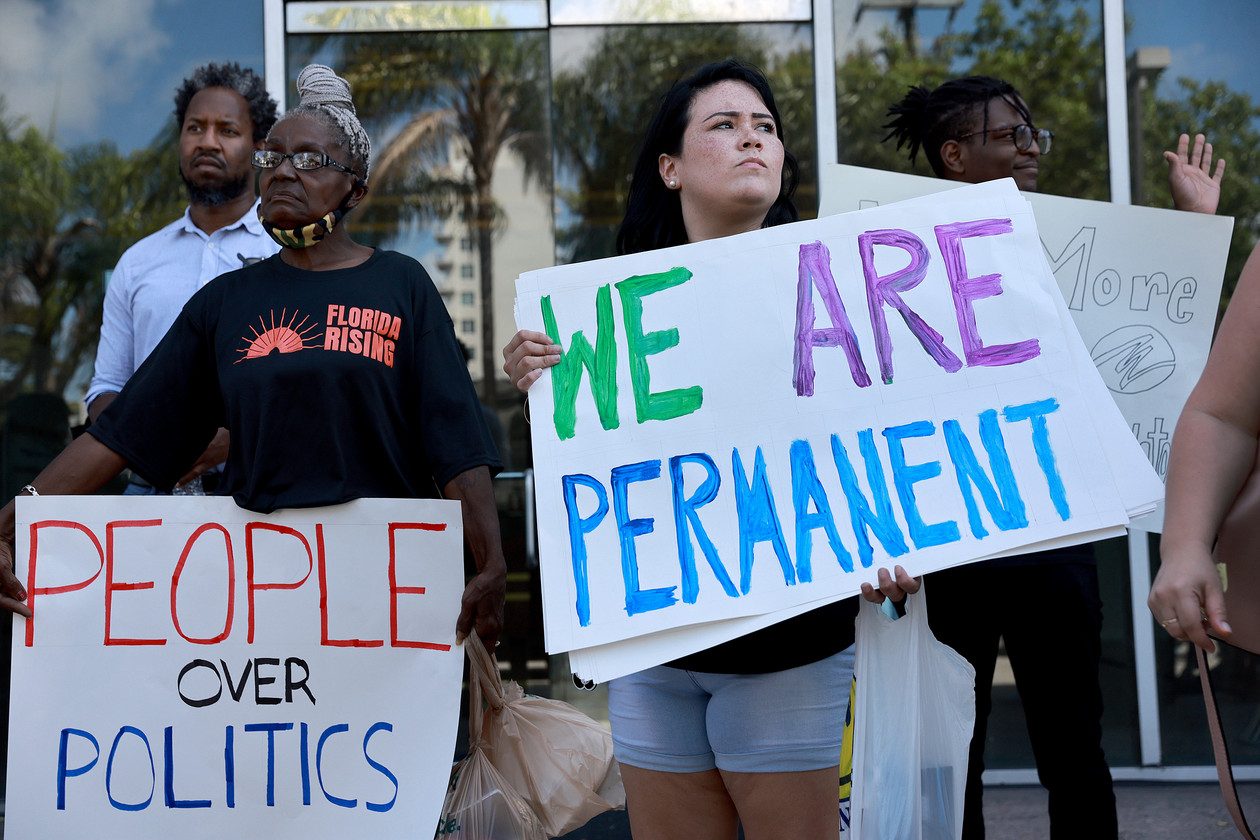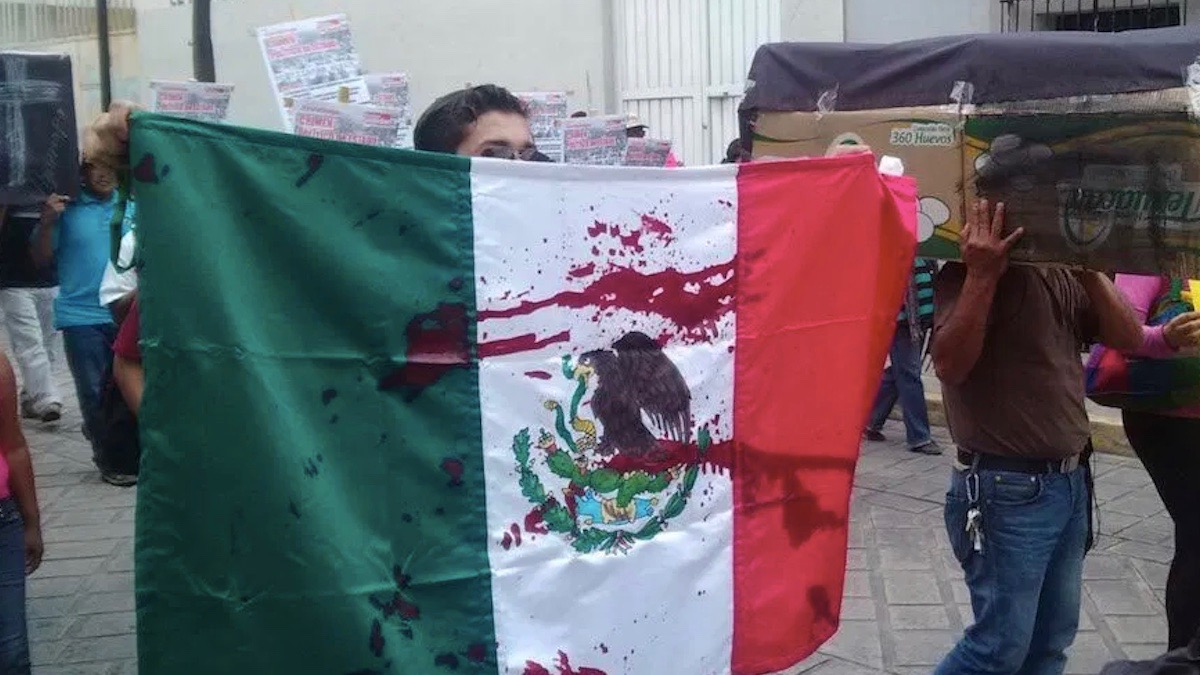Olivia Martini, Associate Member, Immigration & Human Rights Law Review

I. Introduction
The United States is the only United Nations member state that has not ratified the Convention on the Rights of the Child (CRC), a landmark treaty designed to protect the civil, political, economic, and social rights of children.[1] Yet even without formal ratification, the CRC sets forth widely accepted international standards that reflect a global consensus on how children—particularly those in conflict with the law—should be treated.[2] Among its core principles are the right to due process, the prioritization of rehabilitation over punishment, and the requirement that all legal decisions involving children consider their best interests.[3]
Despite these protections, the United States allows prosecutors in many states to unilaterally decide whether a child should be tried as an adult—a practice known as prosecutorial discretion or direct file.[4] Unlike judicial waiver, which requires a court hearing and individualized findings, prosecutorial discretion bypasses these procedural safeguards.[5] Instead, a prosecutor is permitted unilateral decision-making power to dictate whether a juvenile loses access to the rehabilitation protections of the juvenile justice system.[6] Prosecutorial discretion not only raises serious due process concerns but also places the United States in stark contrast with international human rights standards.[7] This blog argues that prosecutorial discretion in juvenile transfers to adult courts violates the CRC’s fundamental principles and calls for its abolition in favor of a more just, developmentally appropriate, and transparent system.
II. Background
The waiver of juveniles into adult court is one of the most severe decisions a prosecutor can make in the American criminal legal system.[8] While originally designed as an extraordinary remedy for exceptional cases, waiver has become a routine tool in some states, fundamentally altering the rehabilitative mission of the juvenile justice system.[9] Today, most states maintain at least one mechanism by which juveniles can be prosecuted as adults and prosecutorial discretion stands out as the most troubling.[10]
A. The Pathways to Adult Court
There are five main mechanisms for transferring children to adult court: (1) judicial waiver, in which a judge decides whether to transfer a case after a hearing; (2) prosecutorial discretion, where prosecutors unilaterally determine whether to file charges in juvenile or adult court; (3) statutory exclusion, where certain crimes are automatically filed in adult court by legislative mandate; (4) demand waiver, where a juvenile requests transfer to adult court to access a jury trial; and (5) reverse waiver, which allows adult courts to return cases to juvenile court in limited circumstances.[11]
While each of these mechanisms raises important concerns, this blog will focus primarily on prosecutorial discretion—the most unilateral and least transparent pathway for transferring youth to adult court.[12] Unlike judicial waivers, which offer at least some procedural safeguards such as hearings and individualized assessments, prosecutorial discretion waivers bypass those entirely, placing immense authority in the hands of state attorneys.[13] As of 2023, fifteen states allow for prosecutorial waivers.[14] In many of these states, prosecutors are not required to justify their waiver decisions in writing and are not obligated to consider developmental or rehabilitative factors.[15] Instead, a prosecutor may transfer a fourteen-year-old to adult court without ever consulting a judge, holding a hearing, or presenting evidence about the child’s background or needs.[16]
B. Prosecutorial Discretion in Juvenile Transfers
Unlike judicial waivers, which are generally guided by statutory criteria and require judicial findings, prosecutorial waivers are largely unreviewable and unchallengeable.[17] In many jurisdictions, the prosecutor is not required to document their reasoning or weigh specific factors, such as the juvenile’s maturity, home environment, education level, or trauma history.[18] This lack of transparency contributes to inconsistent application across counties and even within the same office, depending on the individual prosecutor’s philosophy or political pressure.[19]
Because prosecutorial waivers happen pretrial, often during plea negotiations or case intake, the child and their defense counsel may have little to no opportunity to contest the decision or present mitigating information.[20] Effectively, the prosecutor becomes the sole gatekeeper of the child’s future, determining whether they are entitled to the rehabilitative protections of the juvenile court or subjected to the punitive nature of adult criminal proceedings.[21]
The unchecked nature of prosecutorial waiver has produced troubling disparity patterns.[22] Data from states like Florida and Michigan—two of the most aggressive users of direct file—show that Black and Hispanic youth are disproportionately prosecuted as adults, even when charged with similar offenses as their white peers.[23] In Florida, for example, Black youth represent roughly twenty percent of the juvenile populations but account for over fifty percent of youth transferred to adult court.[24] These racial disparities are compounded by socioeconomic status, neighborhood policing patterns, and implicit biases in prosecutorial decision-making.[25]
In addition, the types of offenses prosecuted in adult court under direct file laws are not limited to the most serious or violent crimes.[26] In some states, including Florida, prosecutors transfer youth for property crimes, drug offenses, or school fights.[27] This undermines the original rationale for waivers and instead reflects a punitive shift in prosecutorial culture.[28]
C. The Consequences of Adult Prosecution
Waiver through prosecutorial discretion also subjects youth to the logistical and psychological harms of the adult system.[29] On average, youth who are transferred to adult court spend over 500 days in detention awaiting the resolution of their case—typically in adult jails, which are ill-equipped to meet their developmental, educational, and mental health needs.[30] This practice does not align with the CRC’s provisions, which call for criminal proceedings involving children to be completed promptly and for detained children to have access to age-appropriate education, mental health care, and contact with family.[31]
Moreover, adult courts do not guarantee protections available in juvenile court, such as confidentiality, rehabilitative services, or age-sensitive sentencing.[32] The consequence of a waiver decision made at the beginning of a case is therefore massive and irreversible—especially in the thirty-six states with “once an adult, always an adult” laws, which strip youth of juvenile court access in all future encounters with the justice system.[33] These structural failures, especially the unchecked power of prosecutorial discretion, highlight the urgent need to evaluate U.S. juvenile justice practices in light of international human rights standards, particularly those set forth in the CRC.[34]
III. Discussion
The harsh realities of prosecutorial discretion reveal the United States’ failure to uphold the basic principles of children’s rights as articulated under international human rights law.[35] Prosecutors wield unilateral power to transfer children to adult court without meaningful oversight, individualized assessment, or procedural protections.[36] This dynamic is not only inconsistent with the developmental goals of the juvenile justice system—it also directly violates the standards outlined in the CRC.[37]
A. The CRC Framework
At its core, the CRC requires that children be treated as children—a simple but powerful mandate that the United States is failing to meet.[38] The treaty, ratified by every United Nations member state except the United States, establishes a framework for juvenile justice grounded in rehabilitation, reintegration, and proportionality, rather than punishment.[39] Although the United States has not ratified the CRC, its near-universal adoption gives it the status of customary international law—a body of international norms that is considered binding even on states that have not formally ratified a specific treaty.[40] Under Article 40 of the CRC and General Comment No. 24 issued by the United Nation Committee on the Rights of the Child, states must: (1) ensure that the reaction to an offense is proportionate to the crime and to the child’s age, background, and needs; (2) guarantee access to education and social services for children in detention; (3) house detained children as close to their families as possible; (4) provide expedited proceedings so that the process itself does not become a form of punishment; (5) and above all, prioritize the child’s reintegration into society.[41]
The prosecutorial waiver process fails each of these requirements under the CRC. First, the process lacks any guarantee of proportionality.[42] Prosecutors may unilaterally transfer a child to adult court without a formal hearing or individualized assessment of the child’s age, background, or potential for rehabilitation.[43] As a result, children are often subjected to harsh sentences that are grossly disproportionate to their offense and developmental stage.[44] Second, children tried as adults are frequently detained in adult facilities where access to education and social services are limited or nonexistent, violating the requirement to guarantee such access.[45] Third, adult facilities are often far from a child’s home, effectively severing the child’s support system and undermining the obligation to detain children as close to their families as possible.[46] Fourth, the process is slow and punitive. Children transferred to adult court spend an average of 521 in pretrial detention, turning the process itself into a form of punishment and failing the requirement for expedited proceedings.[47] Finally, the entire system disregards the core principle of rehabilitation.[48] Rather than offering rehabilitative services or trauma-informed care, the prosecutorial waiver process thrusts children into an adult criminal system focused on punishment, leaving them ill-equipped to return to their communities.[49]
Instead of offering intervention, support, or trauma-informed care, the process funnels youth into a punitive system that was never designed for them.[50] Once there, the long-term consequences are devastating.[51] Youth transferred to adult court are more likely to recidivate, suffer worse mental health outcomes, and struggle to reintegrate into school, work, and community life.[52] Prosecutorial discretion—by circumventing the very system built to protect and rehabilitate children—strips away the opportunity for a second chance before it ever begins.[53] This failure underscores the United States’ noncompliance with the CRC and the urgent need for reform to meet its standards.[54]
B. U.S. Law Must Be Reformed to Align with the CRC
The United States must undertake serious reform to align its juvenile justice system with the standards outlined in the CRC. These reforms should begin with the abolition of prosecutorial discretion in waiver decisions, but they must go further—tackling systemic issues at each stage of the process that currently allow youth to be funneled into adult courts.[55]
First, the United States must abolish direct file and prosecutorial waiver mechanisms through a federal mandate.[56] Although these waiver systems are created and administered by individual states, Congress has the authority to set national standards under its spending power or through condition funding mechanisms that are tied to juvenile justice grants.[57] Just as federal legislation has been used to influence state policy in areas like drinking age and highway safety, Congress should condition juvenile justice funding on the elimination of prosecutorial waivers and the adoption of judicial waiver as the sole transfer mechanism.[58] Decisions that carry lifelong consequences for youth should not rest solely in the hands of prosecutors, especially without transparency, individualized assessment, or judicial oversight.[59] Instead, judicial waiver proceedings should be the exclusive method of transfer. Judicial waiver must be guided by clear standards that reflect adolescent development and prioritize rehabilitation.[60] Every child deserves a meaningful opportunity to be heard by a judge before such a crucial decision is made for them.[61]
Second, states should set a uniform minimum age—at least sixteen years old—below which youth cannot be transferred to adult court under any circumstance.[62] Children as young as ten years old currently face adult prosecution in some states, a practice fundamentally incompatible with international law.[63] The CRC calls for strict limitations on the deprivation of liberty for children, and transferring pre-teens or young adolescents into the adult system directly contravenes this principle.[64]
Together, these reforms would significantly shift toward a child-centered system that aligns with global human rights standards. They would not only improve legal outcomes but affirm the basic principle that children, no matter their offense, are still children and should be treated as such.
IV. Conclusion
Prosecutorial discretion in juvenile transfers undermines the foundational principles of both domestic juvenile justice and international human rights law.[65] By allowing unchecked, unilateral decisions that bypass procedural safeguards, the United States fails to treat children as children—a core tenet of the CRC.[66] While full ratification of the CRC remains stalled, the United States can and must take meaningful steps to bring its practices in line with international standards.[67] Abolishing prosecutorial waiver, establishing minimum age thresholds, and codifying CRC principles into law would not only protect vulnerable youth but also demonstrate a national commitment to justice, dignity, and second chances.[68]
[1] Convention on the Rights of the Child, Nov. 20, 1989, 1577 U.N.T.S. 3 [hereinafter CRC]; Amanda Leavell, Kids You Throw Away: New Jersey’s Indiscriminate Prosecution of Children as Adults, Hum. Rts. Watch (Feb. 11, 2025), https://www.hrw.org/report/2025/02/11/kids-you-throw-away/new-jerseys-indiscriminate-prosecution-children-adults [https://perma.cc/XAD3-V7RH].
[2] The United States signed the treaty in 1995 but has not ratified it, making it the only UN member state to remain outside the CRC’s binding framework. See Leavell, supra note 1.
[3] See Leavell, supra note 1.
[4] Id.
[5] Id.
[6] Id.
[7] Id.
[8] Id.
[9] Id.
[10] Id.
[11] Roger-Claude Liwanga & Patrick Ibe, Transfer of Child Offenders to Adult Criminal Courts in the US: An Unnecessary Exercise, Unconstitutional Practice or All of the Above?, 49 Ga. J. Int’l & Comp. L. 99, 111 (2021).
[12] Id. at 112.
[13] Joel Rosch, How Other States Treat Adolescent Offenders, Ctr. for Child and Family Pol’y, 19 (2023), https://evidence2impact.psu.edu/wp-content/uploads/2023/05/s_ncfis03c03.pdf [https://perma.cc/4CAF-6EUS].
[14] Id. at 18.
[15] Jamie Stevens, The Unreviewable Irredeemable Child: Why The District of Columbia Needs Reverse Waiver, 17 U. D. C. L. Rev. 220, 226 (2014).
[16] Id.
[17] See Leavell, supra note 1.
[18] Id.
[19] See Stevens, supra note 15, at 225.
[20] Id. at 226.
[21] Id.
[22] Alba Morales, Branded for Life: Florida’s Prosecution of Children as Adults Under its “Direct File” Statute, Hum. Rts. Watch (Apr. 10, 2014), https://www.hrw.org/report/2014/04/10/branded-life/floridas-prosecution-children-adults-under-its-direct-file-statute [https://perma.cc/V44T-UAZV].
[23] Id.
[24] Id.
[25] Id.
[26] Id.
[27] Id.
[28] Id.
[29] See Leavell, supra note 1.
[30] Id.
[31] CRC, supra note 1, art. 37.
[32] See Leavell, supra note 1.
[33] Id.
[34] Id.
[35] Id.
[36] Id.
[37] Id.
[38] UN Committee on the Rights of the Child, General Comment No. 20 on the Implementation of the Rights of the Child during Adolescence, U.N. Doc. CRC/C/GC/20, ¶ 88 (2016).
[39] See CRC, supra note 1.
[40] Steve Mulligan, International Law and Agreements: Their Effect upon U.S. Law, Cong. Rsch. Serv., 31 (July 13, 2023), https://www.congress.gov/crs-product/RL32528 [https://perma.cc/BGJ7-JDJL].
[41] Committee on the Rights of the Child, General Comment No. 24 on Children’s Rights in the Child Justice System, ¶ 40, U.N. Doc. CRC/C/GC/21 (Sept. 18, 2019).
[42] See Leavell, supra note 1.
[43] Id.
[44] Id.
[45] See Liwanga & Ibe, supra note 11, at 121.
[46] See Leavell, supra note 1.
[47] Id.
[48] See Liwanga & Ibe, supra note 11, at 21.
[49] Id.
[50] See Leavell, supra note 1.
[51] Id.
[52] Id.
[53] Id.
[54] Id.
[55] See Morales, supra note 22.
[56] Id.
[57] Id.
[58] Id.
[59] Id.
[60] Id.
[61] Id.
[62] Id.
[63] Id.
[64] Id.
[65] See Leavell, supra note 1.
[66] Id.
[67] Id.
[68] Id.



